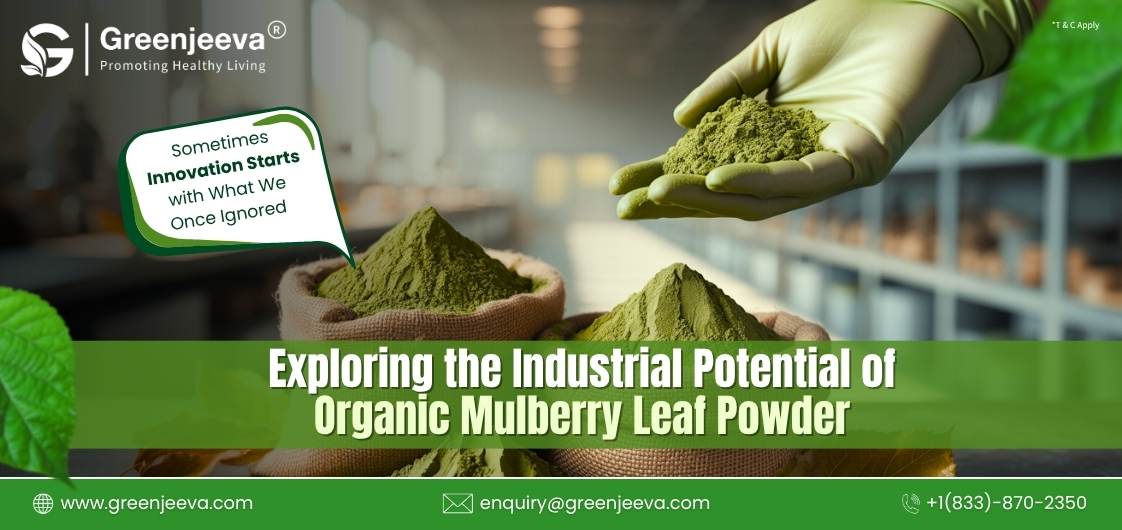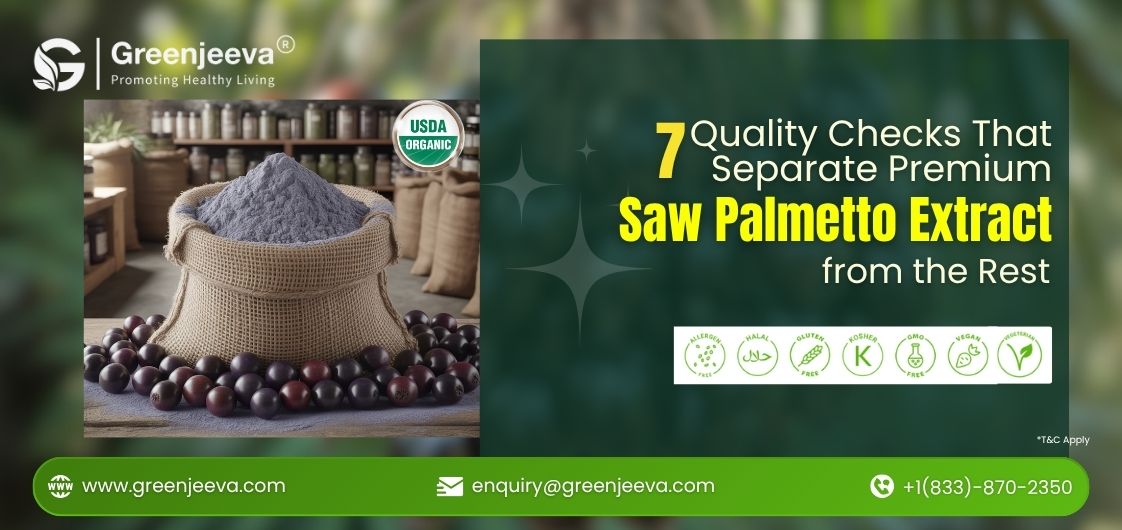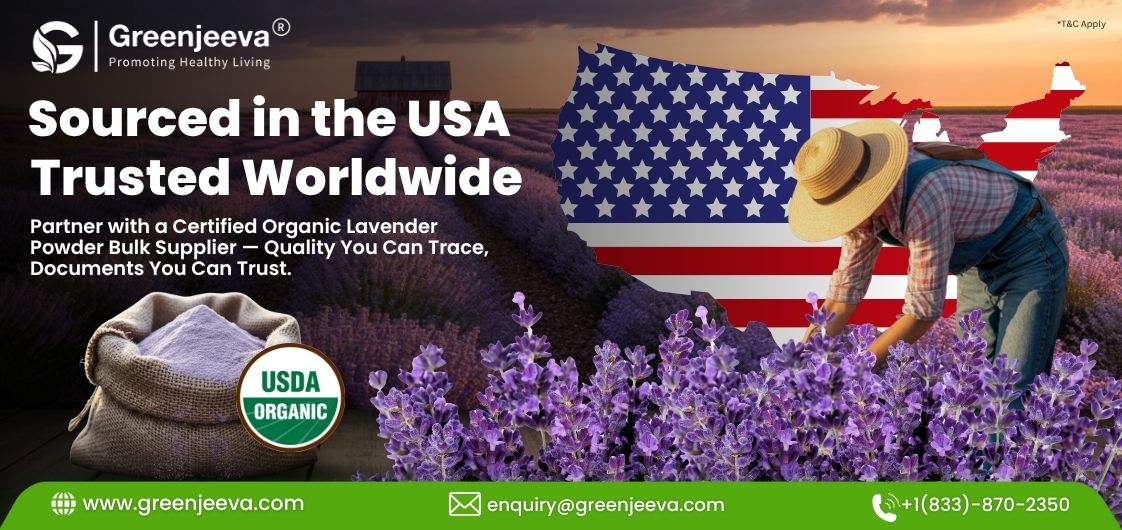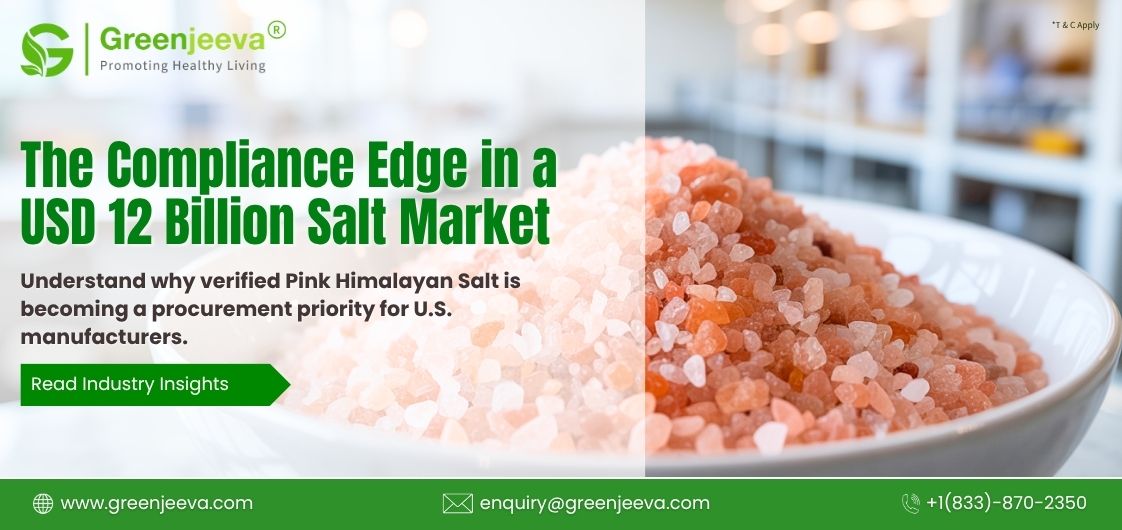How Does Organic Mulberry Leaf Powder Fit into Modern Nutraceutical and Functional Food Formulations?

For years, the humble mulberry tree stood unnoticed in backyards and along fence lines. Yet, its leaves—once overlooked—are now finding renewed industrial value. In today’s formulation-driven markets, Organic Mulberry Leaf Powder is being revisited not as a botanical relic but as a clean-label, versatile raw material for nutraceutical, functional food, and cosmetic manufacturing.
Procurement teams and formulators are increasingly viewing this ingredient as part of a broader shift toward sustainable sourcing and plant-derived functionality. Its composition supports a range of formulation goals, while its processing and certification pathways make it compliant with organic and clean-label standards expected by global buyers.
What Is Organic Mulberry Leaf Powder and How Is It Sourced?
Organic Mulberry Leaf Powder is produced from the dried, ground leaves of organically cultivated Morus alba trees. It is harvested, shade-dried, and milled into a fine powder under clean-label processing conditions to preserve quality, color, and composition.
The leaves are collected from trees grown without synthetic fertilizers or pesticides, typically following USDA Organic protocols. After harvesting, they are gently dried at low temperatures and ground to a controlled mesh size to maintain nutrient integrity. This approach ensures the powder retains its natural green tone, mild aroma, and functional components.
Clean-label manufacturers favor suppliers who use mechanical drying and grinding methods, as these practices enhance product consistency and maintain traceability. Verifiable certifications such as USDA Organic, Kosher, or Halal further support procurement compliance in bulk transactions.
What Are the Key Functional and Compositional Properties of Organic Mulberry Leaf Powder?
Organic Mulberry Leaf Powder contains polyphenols, plant alkaloids, fiber, and micronutrients that contribute to its textural, visual, and functional value in formulations.
The powder’s multi-component composition supports a variety of formulation outcomes:
- Texture and processing: Offers balanced flow and bulk density for blending and tableting applications.
- Color and aesthetics: Natural green tone supports “botanical” visual cues in product design.
- Label support: Enables natural or plant-based positioning for clean-label formulations.
- Functional resilience: Maintains stability and dispersion under typical blending, granulation, or spray-drying conditions.
Its structural compatibility allows integration into capsules, drink mixes, and powders without altering texture or mouthfeel—key attributes for nutraceutical and functional food developers.
How Do Different Industries Utilize Organic Mulberry Leaf Powder?
Industries such as nutraceuticals, functional foods, beverages, cosmetics, and pet nutrition use Organic Mulberry Leaf Powder for its clean-label composition, botanical authenticity, and manufacturing stability.
- Nutraceuticals and Dietary Supplements
Commonly used in capsules, powders, and blends, mulberry leaf powder adds value through its plant-derived composition and clean sourcing profile.
- Functional Foods and Beverages
Formulators incorporate it in smoothies, green blends, energy snacks, and teas to achieve natural color and botanical balance. Its mild taste ensures compatibility across diverse product formats.
- Personal Care and Cosmetics
In topical applications, it appears in scrubs, masks, and soaps for its fine texture and plant-based appeal. Manufacturers value its minimal synthetic input and consistent particle size.
- Animal and Pet Nutrition
Feed and pet food producers sometimes use mulberry leaf powder to introduce plant diversity and fiber into natural formulations.
What Should Buyers Know Before Sourcing Organic Mulberry Leaf Powder in Bulk?
Buyers should verify certifications, analytical reports, and documentation such as COA, MSDS, and organic certificates while ensuring moisture control, mesh size consistency, and verified heavy metal testing.
Procurement teams prioritizing bulk organic mulberry leaf powder supply should review:
- Certifications: USDA Organic, Kosher, Halal, and Non-GMO as required.
- Testing reports: COA for microbiological parameters, moisture (~10% or below), and heavy metals.
- Documentation: Organic Certificate, MSDS, and specification sheets to ensure traceability.
- MOQ and sampling: Suppliers typically provide samples for formulation trials before bulk confirmation.
- Processing uniformity: Mesh size and drying method directly influence blend ability and appearance in final formulations.
This documentation ensures compliance with industrial standards and facilitates quality audits.
Lesser-Known Facts About Mulberry Leaf’s Industrial Use
- Historically linked to silk cultivation, mulberry leaves are now valued for their sustainability, fast regrowth, and adaptability as a renewable industrial resource.
- Mulberry cultivation dates back centuries, primarily for silkworm farming. The leaves, however, held broader potential—now recognized in clean-label industries. Because mulberry trees regenerate quickly, they support low-input, regenerative farming systems.
- This adaptability makes mulberry leaf powder a sustainable ingredient source and a practical fit for industries emphasizing reduced agricultural impact and renewable supply chains.
How Is the Market for Organic Mulberry Leaf Powder Evolving?
- The North American market for Organic Mulberry Leaf Powder is expanding steadily, driven by increasing demand for plant-based, traceable, and compliant ingredients in nutraceutical and functional food manufacturing.
- In the United States, mulberry leaf powder is gradually moving from niche botanical to mainstream clean-label input. Manufacturers value its reliability and natural profile for formulation diversification.
- R&D teams are exploring new uses in powdered beverages, herbal teas, and sustainable ingredient systems. Demand for wholesale organic mulberry leaf powder and bulk supply has risen alongside preference for domestic, certified sourcing.
- Pricing trends depend on leaf quality, harvest season, and processing control, with bulk mulberry leaf powder suppliers in the USA offering more consistent cost and documentation compared to unverified import channels.
Conclusion
The rediscovery of Organic Mulberry Leaf Powder underscores a quiet shift in industrial formulation strategy, turning overlooked agricultural resources into reliable, compliant, and functional inputs. Its technical stability, compositional value, and sustainable origin make it a practical addition for manufacturers seeking consistency and organic traceability.
If your team is evaluating bulk Organic Mulberry Leaf Powder for nutraceutical, food, or cosmetic manufacturing, connect with Green Jeeva for samples, verified documentation, technical specifications, and wholesale supply options across the USA. Register and order a free sample today to test before you buy.
**The Food and Drug Administration has not evaluated these statements. This product is not intended to diagnose, treat, cure, or prevent any disease.**





